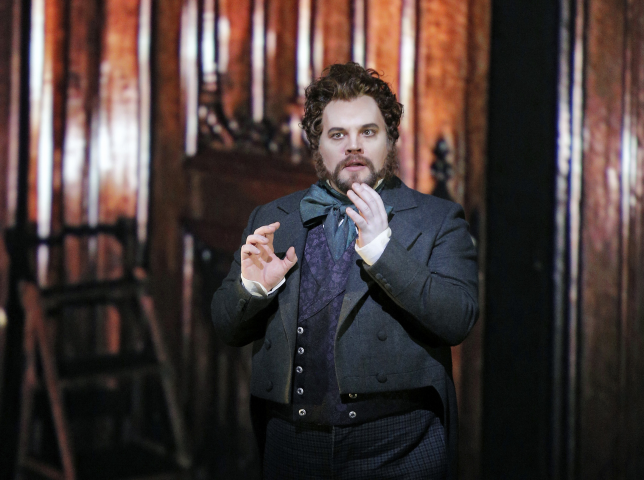- Opera in one act
- Piano reduction available
- Can be performed as the "Scare Pair" with The Canterville Ghost
- Libretto by the composer, based on Edgar Allan Poe's The Fall of the House of Usher
- Duration: 1 hour
Roles
Edgar Allan Poe — Tenor
Roderick Usher — Baritone
Madeline Usher — Soprano
Doctor Primus — Bass
Madeline as a child — Soprano
Roderick as a child — Soprano
Attendant — Baritone
Ancestors — DancersMusicians — Actors: Non-speaking
Instrumentation
Bassoon, doubling Contrabassoon
2 Horns in F
Trumpet in C
Tenor Trombone
Bass Trombone
Percussion, 2 Players: (Slapstick – one-handed, Anvil, Thunder Sheet, Bass Drum, Snare Drum, Tubular Bells, Glockenspiel, Xylophone, Vibraphone – motor off, Marimba)
Harp
Sampler Keyboard, 1 Player (Celesta, Harpsicord, Piano)
Strings
Reviews
“I found both Getty’s libretto and music to be effective in presenting an augmented version of Poe’s tale. It worked well that the character of Madeline Usher, Roderick’s sister who was entombed a few days too early, was assigned to a dancer (Jamielyn Duggan), with Madeline’s voice sung by Illinois soprano Jacqueline Piccolino.”
OperaWarhorses, 2015
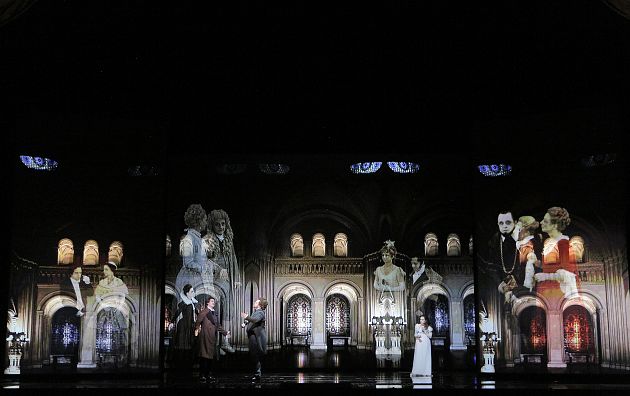
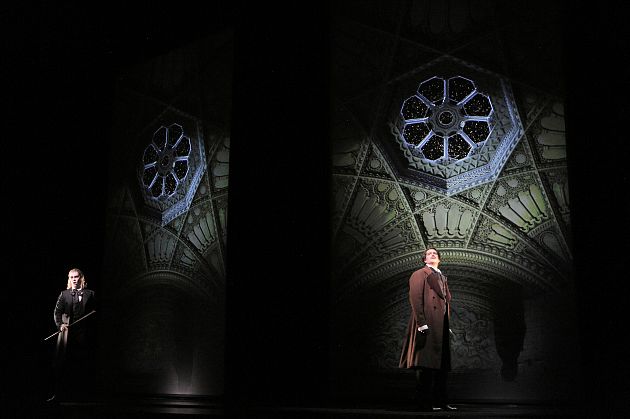
“Usher House is [Getty’s] treatment of Edgar Allan Poe’s The Fall of the House of Usher, and it is a more edgy work. Poe is introduced into the drama in the role of narrator telling the story. Getty has made other adjustments…He actually makes the Ushers more appealing and likeable than they are in Poe (or in Glass’s opera), and the horror of the ending is all the more dramatic because we have been attracted to them. The music is darker than [Getty’s] Plump Jack, as is appropriate for the story. One hears echoes of Bartók, Debussy, and Mahler in the writing. But the score is not mere copying of others’ music.”
Henry Fogel
Fanfare, January-February 2014
“He is a real composer. His style is proudly tonal, although there are, as he says, ‘hints of atonality, such as any composer would likely use to suggest a degree of disorientation...’ I think Usher House is his most expressive work yet.”
Raymond S. Tuttle
International Record Review, January 2014
Gallery
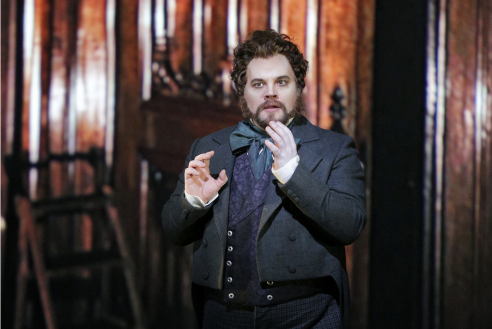
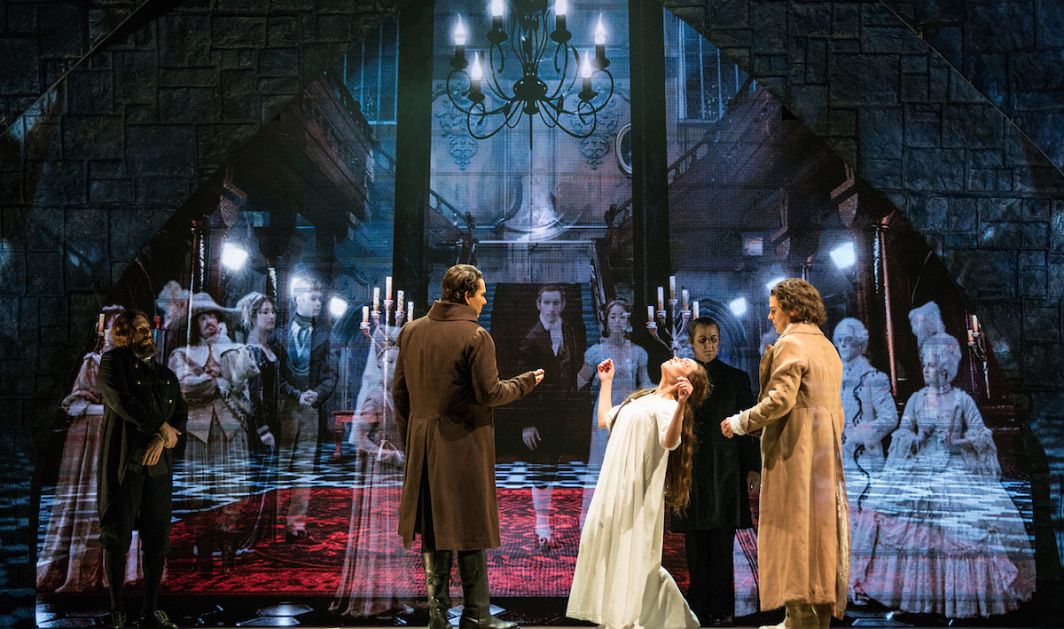
“There is a certain strophic character about the sung lines in the first scene, and the orchestration is exceedingly clever, supporting the voices or commenting on the drama in turn. When Roderick suggests having a ball, for instance, the rhythm changes to 3/4 time and a quirky waltz melody arises; when he talks of the landscape around the house as being desolate, the orchestra reflects this in both its melodic and timbral treatment. This sort of thing continues throughout the opera, the sign of an assured composer who understands his art and knows exactly how to morph and change the music, not only in such a way that it supports or echoes the drama but also to keep the listener on the edge of the seat. This is first-class music.”
Lynn René Bayley
Fanfare, January-February 2014
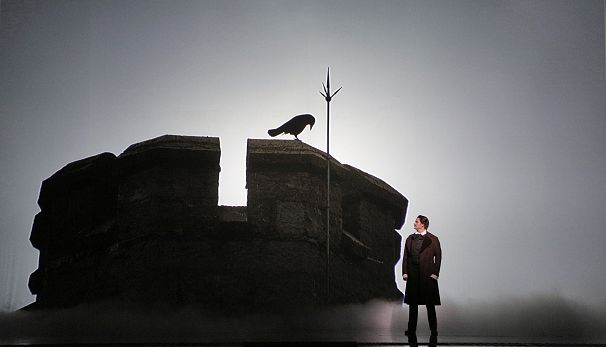
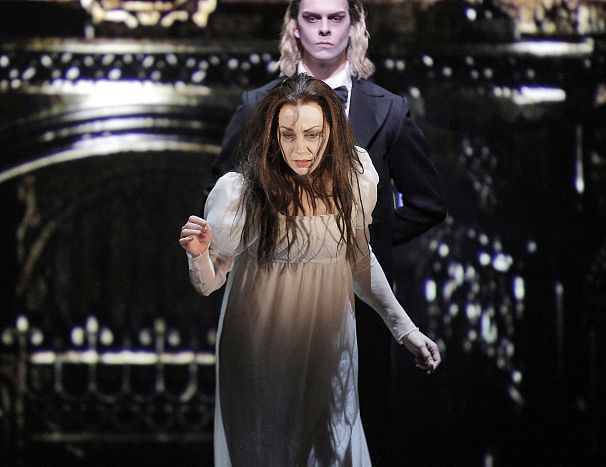
In addition, Getty…has added elements to the devolution of the ancient curse on the Usher family, and has chosen to put the Usher Ancestors into the production (as either silent performers or projections). These alterations heighten the dramatic impact of the show, effectively conveyed in this recording by the emotive and powerful voices of the small international cast…
Jeff Kaliss
San Francisco Classical Voice, 2013


“He is a real composer. His style is proudly tonal, although there are, as he says, ‘hints of atonality, such as any composer would likely use to suggest a degree of disorientation’...I think Usher House is his most expressive work yet.”
Raymond Tuttle
International Record Review, January 2014
